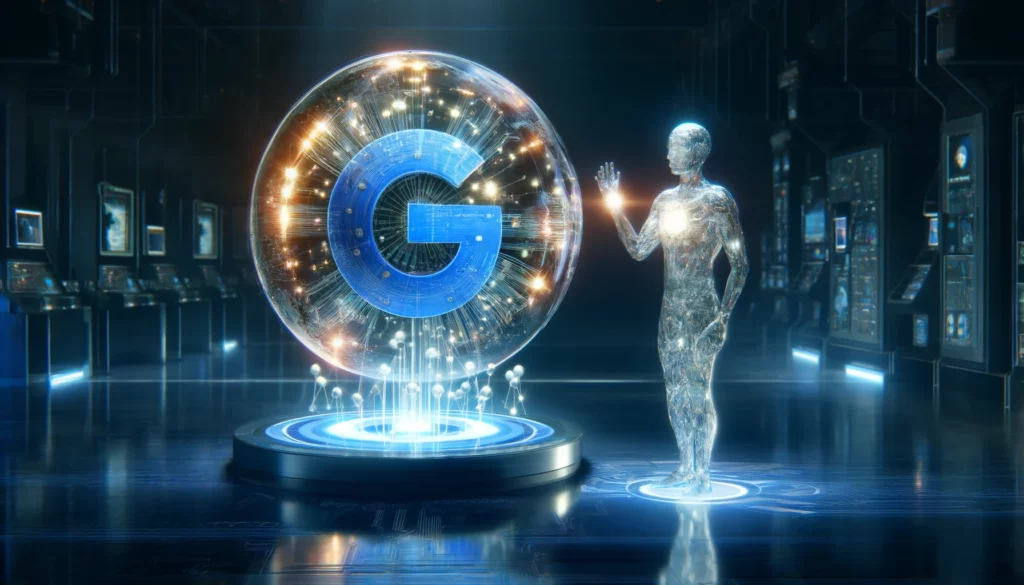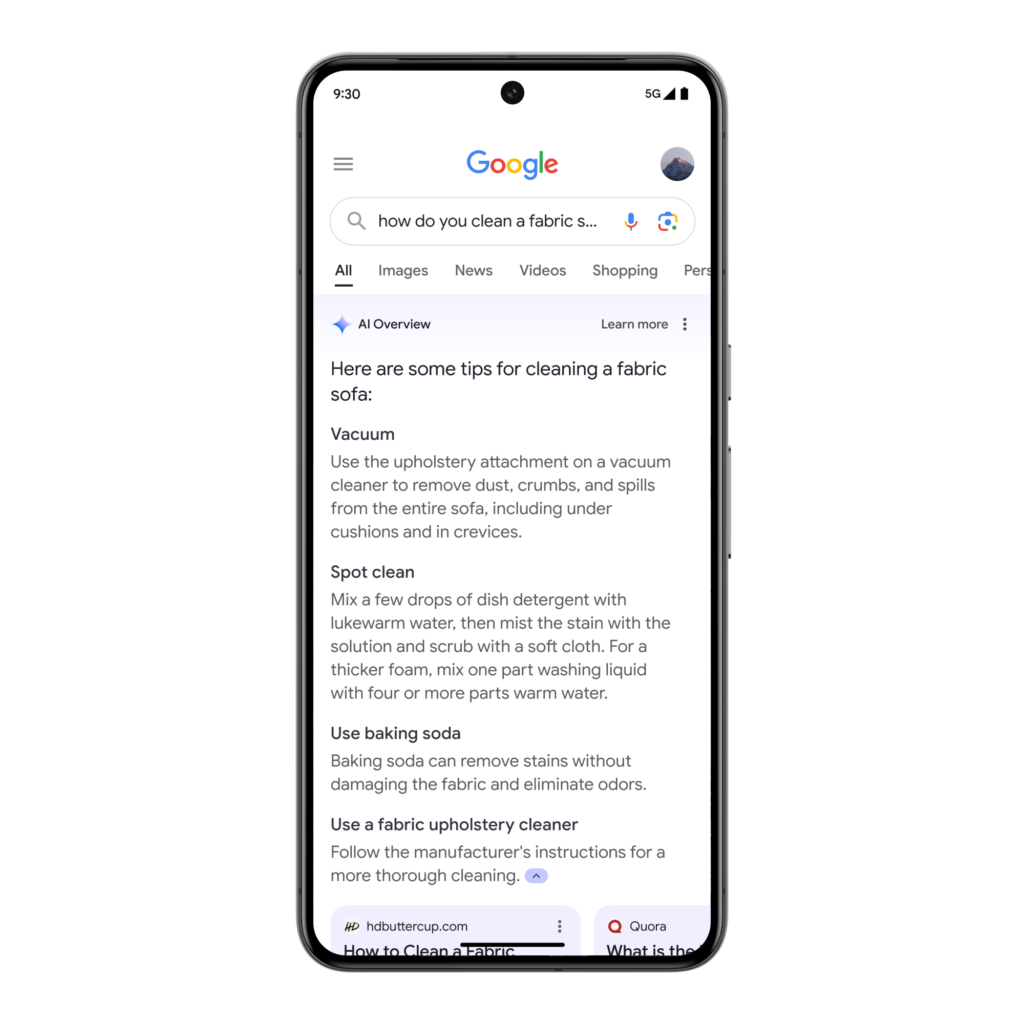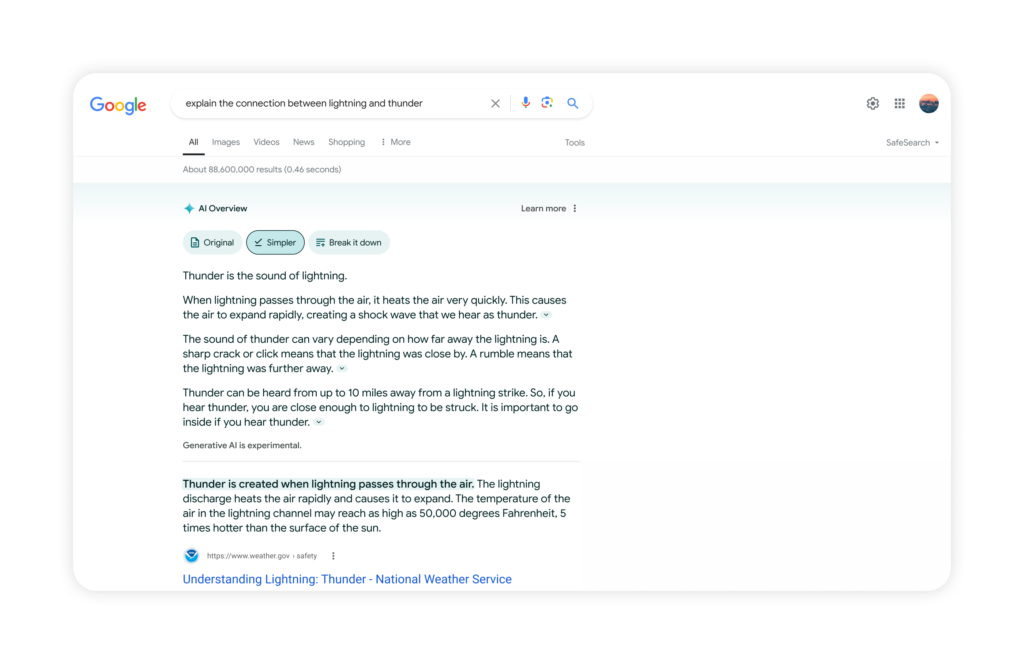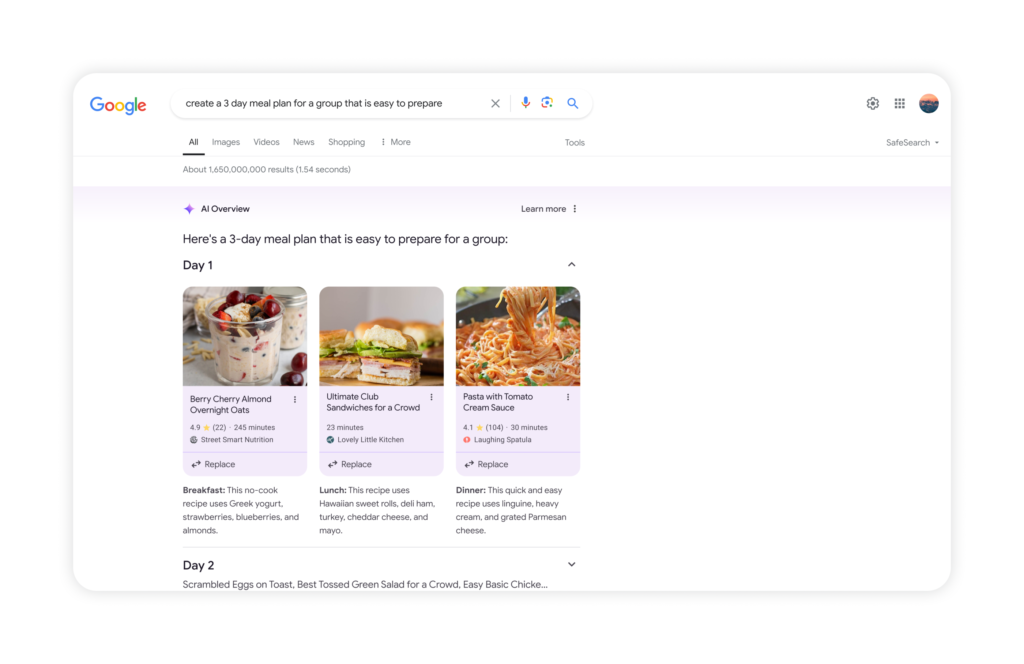

Last updated on

During its annual I/O developer conference, Google revealed its intention to integrate generative AI directly into Google Search.
Furthermore, Google introduced an expansion to its AI-driven search experience, aimed at revolutionizing how individuals find and engage with information.
The forthcoming enhancements comprise:
Liz Reid, the Head of Google Search, declared in an announcement:
“With generative AI integrated, Search can surpass your expectations. Whether it’s researching, planning, or brainstorming, you can inquire about anything on your mind or any task you need to accomplish, and Google will handle the groundwork.”
At the core of Google’s AI-powered Search overhaul lies a tailored Gemini language model.
According to Google’s announcement:
“The driving force behind this innovation is a newly customized Gemini model for Google Search. It amalgamates Gemini’s sophisticated functionalities — encompassing multi-step reasoning, planning, and multimodality — with our top-tier Search systems.”
AI overviews swiftly furnish users with concise responses to their inquiries, synthesizing data from diverse origins.
Google reveals that individuals have already availed AI Overviews billions of times via Search Labs.
Google is integrating AI overviews from Search Labs into its standard search results pages.
This move will grant hundreds of millions of US searchers access to AI overviews this week, and the number is expected to surpass 1 billion by the year’s end.

Searchers will soon have the capability to customize the language and depth of information in AI overviews to align with their preferences and comprehension of the subject matter.

Gemini’s multi-step reasoning capabilities empower users to pose intricate questions and receive thorough responses.
For instance, you could inquire, “Identify the top yoga or pilates studios in Boston and provide information on their introductory offers and walking distance from Beacon Hill,” and obtain a detailed answer.

Beyond addressing complex queries, Google will extend planning support for diverse aspects of life, spanning from meal preparation to vacation arrangements.
You can request a personalized meal plan by searching for queries such as “create a 3-day meal plan for a group that’s easy to prepare.” In response, you’ll receive a customized plan curated with recipes sourced from various websites across the web.
Google is rolling out AI-organized results pages, which categorize useful results under distinct, AI-generated headlines, offering a variety of perspectives and content types.
Initially, this feature will focus on dining and recipes, but there are intentions to broaden its scope to encompass movies, music, books, hotels, shopping, and beyond.
Furthermore, Google will introduce the capability for users to pose questions using video content. This visual search feature aims to streamline the search process by allowing users to save time by recording a video instead of describing issues or typing queries.

While Google promotes this update as a means to elevate search quality, the proliferation of AI-generated content might pose challenges for businesses and publishers dependent on Google Search traffic.
AI overviews command significant screen space and could potentially overshadow traditional “blue link” web results, leading to a notable decline in clickthrough rates.
Data provided by ZipTie and Search Engine Journal contributor Bart Goralewicz suggests that AI overviews dominate over 80% of search queries across various verticals.
Furthermore, according to a unique ranking system for AI overviews, merely 47% of the top 10 traditional web results are featured as sources contributing to the overview generation.
Bart Goralewicz, Founder of Onely, uncovered this about AI overviews (formerly known as SGE):
“SGE operates on an entirely different plane compared to traditional search. To secure a spot in Google SGE, you’ll need to devise a unique strategy tailored specifically to this new landscape. It’s a whole new ball game.”
Tomasz Rudzki of ZipTie offers a cautionary note:
“Google SGE represents the most contentious and anxiety-inducing shift in search,” he commented. “With continuous changes occurring week by week, businesses relying on organic search must meticulously monitor SGE’s evolution.”
With the acceleration of AI search capabilities, SEO professionals and content creators are encountering fresh hurdles in maximizing discoverability.
Consider adopting these strategies to potentially enhance visibility in search outcomes:
As Google advances its AI-driven search vision, significant disruptions may reshape digital economies and information ecosystems.
Companies must adapt their strategies to thrive in an AI-powered search environment.
At Search Engine Journal, we’re closely monitoring these developments to offer strategies that facilitate the discoverability of your content within AI-generated overviews.
Original news from SearchEngineJournal